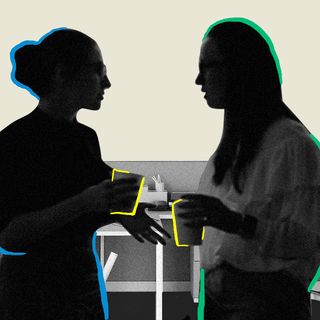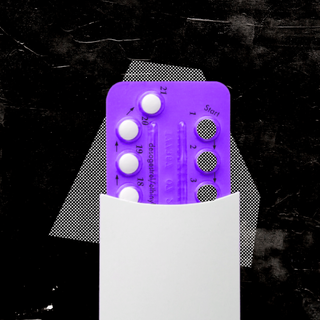The “spoon theory” is a metaphor that people living with chronic illnesses, or disabilities, often rely on to describe the amount of energy — mental and physical — they have for “basic,” everyday tasks.
The theory was developed in 2003 by Christine Miserandino to enable friends and families of people suffering from chronic illnesses to understand the toll living with a health condition can take on their energy levels — in a build to foster understanding and empathy.
Miserandino herself lives with lupus — a life-long autoimmune disease — and came up with the theory to explain to a friend of hers the sheer amount of organization, planning, and intentionality it requires for a person to navigate their day-to-day lives.
She explains that “the difference [between] being sick and being healthy is having to make choices or to consciously think about things when the rest of the world doesn’t have to. The healthy have the luxury of a life without choices, a gift most people take for granted.”
Related on The Swaddle:
Why Disability Activists Argue Against Labels Like ‘Differently Abled’
According to her theory, in general, healthy individuals don’t have to think twice about conserving their energy while going about everyday tasks like brushing their teeth, showering, getting dressed, making it to work, and even sitting down for a meal. However, for someone living with a chronic illness, each one of these things — and more — can take such a heavy toll on their energy that they can barely indulge in other activities.
While “most people start the day with [an] unlimited amount of possibilities, and energy to do whatever they desire,” Miserandino says, a chronically ill individual may start their day with a finite amount of energy. The metaphor uses spoons to represent energy units.
For every task a chronically ill individual performs — depending on how difficult it was for them — they lose energy units, meaning more and more spoons get taken away. And when they’re gone, a person has no energy left to get through the day.
Breaking down what “dressing up” might feel like for a chronically ill person, Miserandino says, “You cannot simply just throw clothes on when you are sick… I have to see what clothes I can physically put on, if my hands hurt that day buttons are out of the question. If I have bruises that day, I need to wear long sleeves, and if I have a fever I need a sweater to stay warm and so on.”
In 2013, BBC News reported that the theory has begun “cropping up in the everyday language of people with stamina problems.”
Related on The Swaddle:
Why We Expect People With Invisible Disabilities To Learn To Act ‘Normal’
The theory has since been used by people with disabilities, too — especially by those living with invisible disabilities since society often tends to perceive them as lazy, or having poor time management skills simply because they can’t “keep up” or “change, or cancel plans.” In fact, Miserandino’s blog, too, is named: “But you don’t look sick.”
For some people on the autism spectrum, for instance, the simple act of grocery shopping from “just around the corner” can cost several units of energy because of the sensory overload from moving trolleys, bright lights, the noise of several people talking at the same time, announcement of offers on the audio system — besides the challenge of communicating with the cashier.
As the theory grew in popularity, it became a useful — and even validating — tool for more and more people from around the world. For Rosemary Ainley, who lives with arthritis, it became “a way to deal with comments like, ‘We all get tired. That’s just life,’ or ‘You’d have more energy if you just changed your diet, exercised more, or tried the latest supplement’. It helped to validate my experiences and to understand that I wasn’t alone in feeling them.”
Patients living with mental conditions, too, use it now to communicate their energy levels — and subsequently, their ability to perform tasks they may not have allotted “spoons” for when they started their day. “Someone who suffers from depression will require much more energy to get out of bed in the morning than someone who does not suffer from depression,” Casey Beise, a clinical social worker from the U.S., explained.
“Do you know how many ‘spoons’ people waste every day? I don’t have room for wasted time, or wasted ‘spoons’…,” Miserandino noted, adding: “When you are healthy you expect to have a never-ending supply of ‘spoons’… I’ve wanted more ‘spoons’ for years and haven’t found a way yet to get more.”




